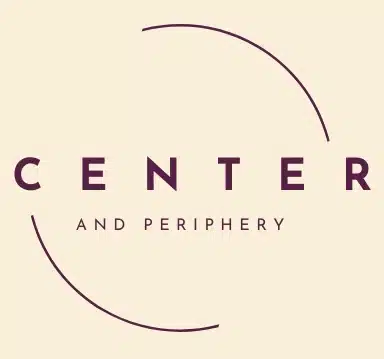In This Edition...
Interview with Sage Lewis
“I am Darth Vader, But Use my Anger to Help Homeless People.”:
A Profile of Sage Lewis by David Barham
When you sit down with Sage Lewis, you quickly sense that his life has unfolded like a symphony with many unexpected movements. A former professional cellist, successful entrepreneur, tech guru, outspoken activist, and now law student, Sage has a way of reinventing himself whenever life calls for a new response. Yet running through each chapter of his story is a consistent theme: a deep commitment to human dignity, and a restless search for how best to serve. Sage’s overall observation about life: “It is unbelievable how good people are. I don’t believe in systems, I believe in individuals- they are my inspiration.”
Sage’s journey began with the cello. Raised by a single mother who sacrificed nearly everything to nurture his musical talent, Sage earned a full scholarship to Baldwin Wallace College in Berea, Ohio. But as much as he loved music, he began to feel hemmed in by the label of “cellist.” “I didn’t want to be defined only by that one thing; the cello didn’t get to decide my life for me,” he remembers. He eventually switched his major to English, while continuing to play in the orchestra (to maintain his scholarship!)
After college, Sage tended bar and was so bored that he taught himself the new language of HTML (Hypertext Markup Language). In 1999, what started as curiosity grew into a business: Sage Rock, a digital marketing company he founded with his wife, Rocky. The company flourished in the early 2000s, growing to nearly 20 employees and millions in revenue. But the 2008 recession brought it crashing down, forcing Sage to pare back. Today, Sage Rock is a family enterprise, run by Sage, Rocky, and their son, Indiana, with a focus on AI, advertising, and social media. “We learned to keep it lean, but still creative,” he says with a smile.
In 2015, while collecting signatures for a mayoral run in Akron, Sage had a series of conversations that would change his life. He met men and women living on the streets, and was struck by their wit, intelligence, and honesty. “It shattered my stereotypes,” he recalls. Out of those encounters grew a decision: to create space for the homeless on his own property. At its height, his property was home to a 70-tent encampment, a place of safety and community for people who had nowhere else to go.
The city of Akron pushed back hard, taking him to court and ultimately winning a permanent injunction against tents on his land. Though the encampment was dismantled, Sage’s commitment deepened. He now calls the homeless “American refugees,” a phrase he feels more truthful than “unhoused.” He continues to advocate, writing a newsletter called The Nomadic Spirit (https://nomadicspirit.substack.com/) and has even enrolled in law school (University of Akron Law School)—despite his skepticism about systemic reform—so he can fight more effectively for those who have no legal representation. “I believe in a country where no one is left to rot on a sidewalk. Law is the tool I will use to build that future.” Sage says, “Going to law school is something to do, and I have to do something. I find solace in helping in this one way.”
Sage’s path to the Center for Anthroposophy came, fittingly, through service. When COVID forced Waldorf schools and adult education programs online, Sage stepped in to help. First at his son’s Waldorf school, Spring Garden, where he built portals and set up Zoom systems, Sage then kept Renewal and the Waldorf High School Teacher Education Program (WHiSTEP) running when in-person gatherings were impossible. Since then, he has remained a behind-the-scenes presence, providing technical support with his characteristic mix of pragmatism, heart, and trickster expertise.
Sage is deeply engaged in thinking about the role of technology in human development. He has created a learning framework he calls “Demass Learning” centered on the idea of “demassification”—tailoring learning experiences to the individual. To him, AI could be a kind of “one-on-one PhD teacher at our beck and call,” offering personalized education and even openings to higher consciousness. “A path of our own spiritual journey can’t be learned in a classroom- it is our own journey, and AI can help.” At the same time, he warns of artificial intelligence’s shadow side: a future of inequality and “technological feudalism, a Hobbesian brutal place.” Living in that tension—between promise and peril—is something Sage embraces, just as he has in other parts of his life.
Despite his many commitments, Sage keeps his spirit nourished. Recently, he has been inspired by Nirvana’s MTV Unplugged (1993) performance, Talking Heads’ Stop Making Sense, (1984) and the epic manga One Piece (1997- present), which he reads alongside his son. He connects the themes of loyalty, adventure, and destiny in One Piece to the wisdom of the Bhagavad Gita and how Krishna spoke to Arjuna about the call to follow one’s dharma.
For those who work with him at the Center for Anthroposophy, Sage is often the friendly, wildly competent person who solves technical problems in the background. But behind that quiet role is a man whose life has been anything but conventional and whose inner life is not always as placid as his tech-Buddha presence might imply. Sage speaks about how much anger he carries alongside his love of people, and how he is “angry that I am so angry.” But as David Byrne sings in Life During Wartime, “My chest is aching, burns like a furnace, The burning keeps me alive.”
From music to marketing, from tents in Akron to law school classrooms, Sage Lewis has arrived at this conclusion: “I don’t believe the answer is to fight the machines. I believe the answer is to become more fully human and learn to partner with intelligence—human and artificial—in ways that create real community and real meaning.”
Spring/Summer 2022

